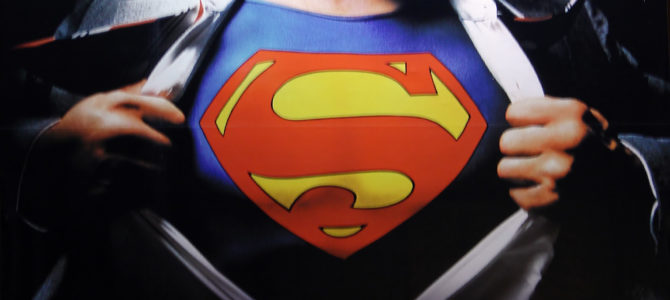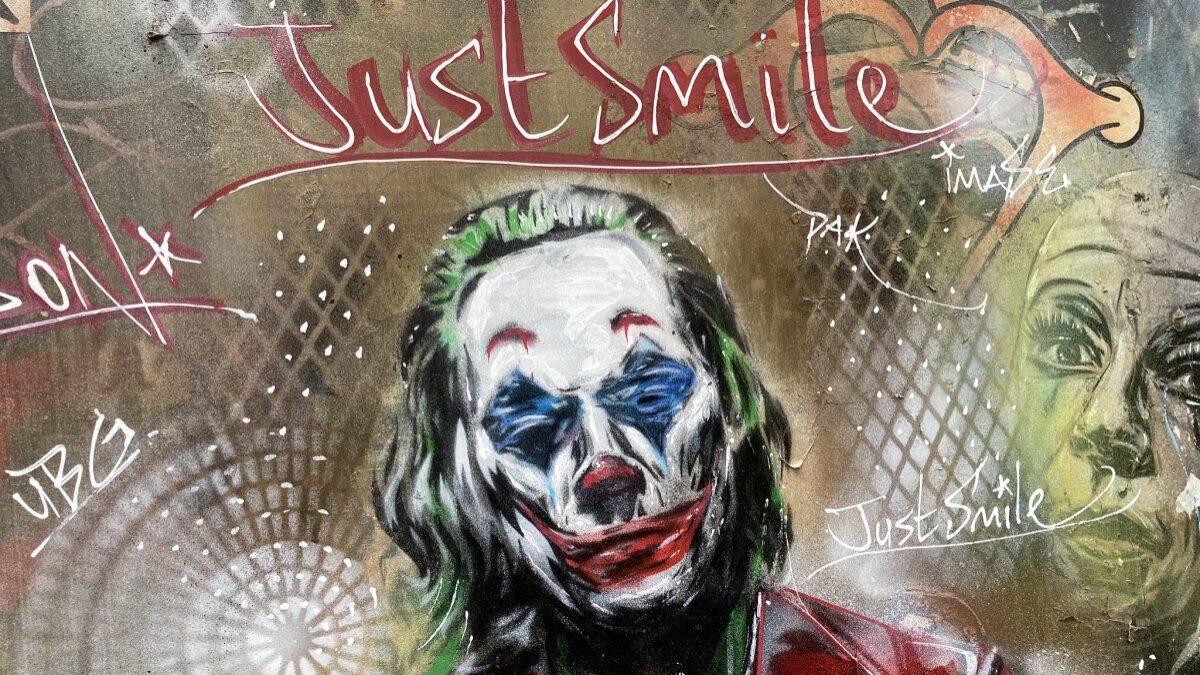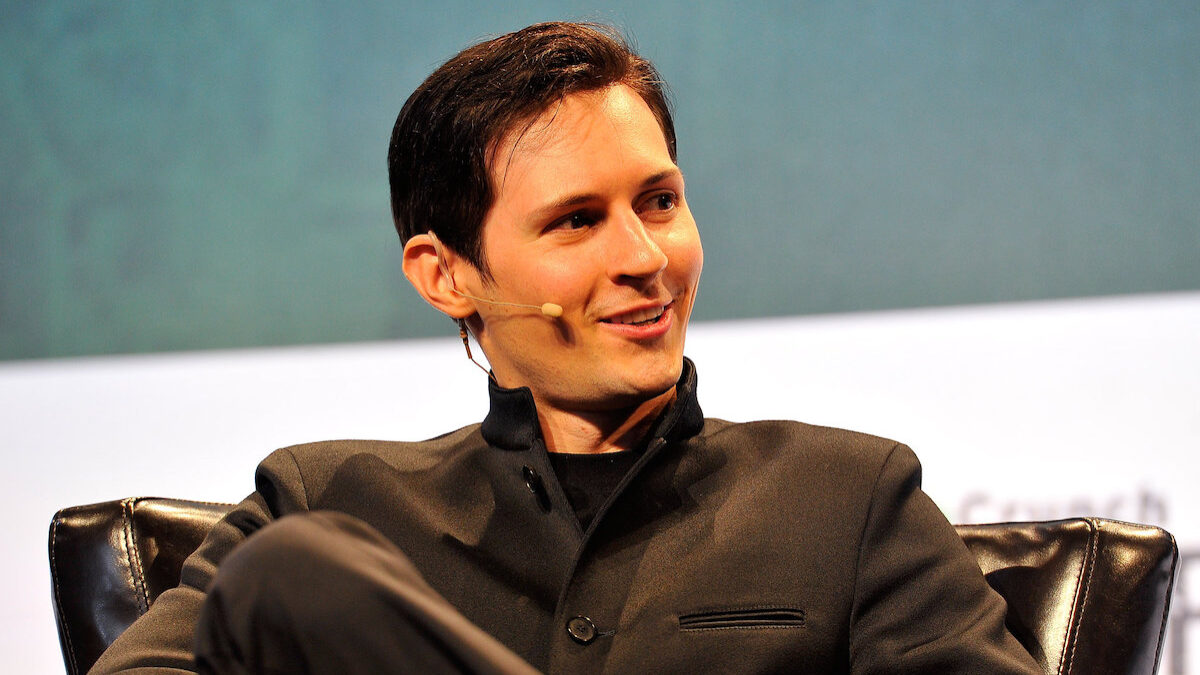
Surprise: Superman is gay! For National Coming Out Day on Monday, DC Comics officially announced Superman will no longer be a “white savior.” Instead, Supes is now a bisexual hero and proud activist for causes like open borders and ending climate change.
Yes, they turned Superman gay. Just not the Superman you are thinking of. Not Clark Kent, but his more progressive 17-year-old son, Jonathan Kent, who is apt to fight Internet “misinformation” as crime.
Jonathan is the son of Clark Kent and Lois Lane, first introduced in 2015. This story proved to be popular enough to get a spinoff on The CW. This July, Jon got promoted to the big-boy cape.
Only five issues into his series, “Superman: Son of Kal-El,” and Supes is now in a gay relationship with pink-haired journalist Jay Nakamura. Nakamura is apparently an amazing reporter, whose innovative superpower — and I’m not making this up — is he can’t be harmed.
Nakamura suffers from what comics fans refer to as an extreme case of the bestest everz, meaning weakly written characters with thin personalities and impossibly perfect traits. (Note: DC claims Jon is now bisexual, but generally in the world of comics, once a character is in a gay relationship, he or she never dates a straight person again.)
A Righteous Diversification of Superheroes
The reasoning for the change, at least according to some, is a righteous diversification to make comic book characters more reflective of the modern world.
“When I was asked if I wanted to write a new Superman with a new #1 for the DC Universe, I knew replacing Clark with another straight white savior could be a real opportunity missed,” Tom Taylor told IGN. “I’ve always said everyone needs heroes and everyone deserves to see themselves in their heroes. Today, Superman, the strongest Superhero on the planet, is coming out.”
Taylor further explained what a new Superman should fight for: “Can a seventeen-year-old Superman battle giant robots while ignoring the climate crisis? Of course not. Can someone with super sight and super hearing ignore injustices beyond his borders? Can he ignore the plight of asylum seekers?”
Okay, But What’s the Real Reason?
As I wrote for The Federalist when covering the transformation of long-time famous playboy Robin (the Tim Drake version) into a gay icon, the woke-ification of comics is a desperate strategy from a fading industry. Just as character deaths and weddings dominated comic events in the 1990s, diversifying characters is the approach now. As indie comics king Richard C. Meyer said, turning an established character gay is the last trick in the bag for the dying Western comics industry.
Like a stale joke, comics sales continue to plummet month after month after month. Things are so bad that if DC and Marvel can even get one title in the top 20 sales bracket for adult graphic novels, that is considered an excellent month.
Japanese manga now dominate sales, earned with high quality series like their take on the superhero genre Boku no Hīrō Akademia. Comics creators are abandoning traditional publishers for online indies such as Comixology and Substack. DC and Marvel rarely produce profit for their corporate masters and are now only kept around as streaming and movie story incubators.
At the same time, DC feels the economic damage we are all experiencing and is suffering from shortages in paper and printing. It is no coincidence that there were only three days between the announcement of interminable late comics shipments and gay Superman.
Some in the media, like Bleeding Cool’s Rich Johnston, push back on the idea that the en masse queerification of classic characters is by corporate directive. It’s true that the project to replace established characters with queer or racialized versions is not new. But until now, those changes mostly affected sidekicks and lesser-known characters. Something is up. Fans notice when there is a new replacement character every month.
According to Johnston’s own reporting, and that of others, major DC characters’ sudden sexual and racial identification was the plan at least as far back as 2019, while AT&T’s WarnerMedia still owned DC Comics. The company planned a strategy titled “The Fifth Generation of DC Superheroes,” to replace current DC classic characters with more woke ones.
Gone is stodgy white billionaire Bruce Wayne, in comes the African American Lucas Fox. The promotion of Jonathan Kent as Superman was part of that roadmap.
Then Covid happened, and AT&T noticed comics sales were continuing to tank while other entertainment’s popularity rose. Likely when they saw the strategy, they recognized the red flags, and sold DC. But the strategy continued, with some exceptions (Tim Fox is now batman, not Lucas).
Why Should You Care?
This change is only part of what will likely be a hugely damaging, shallow rewrite of many celebrated American comics and their adaptations to the big and small screens. The change is unlikely to hold back the wolves for long.
Their destiny, if they somehow survive, is to become comics companies in name only; selling merchandise with their logo on it, while farming out the actual comics-making to smaller companies that take on all the risk. With comic shops closing left and right, save a miracle, the big two publishers are done for.
Unfortunately, conservatives and the heterodox are not interested in fighting this trend, perceiving it as an unimportant and lost cause. That leaves another cultural battlefield to the victory of historical revisionists.
National Review’s online editor Philip Klein dismisses the idea that fans might be rightly bothered by their cultural touchstones being transmogrified, writing that “There’s no particular reason to get worked up over a comic-book character, of course.”
“This development — as well as Superman getting more political — just strikes me as a boring and lazy way to try to generate headlines and put the iconic franchise on the correct side of the cultural divide,” Klein continues. “But the latest turn also seems to be a bit behind the times — in 2021, a character being gay does not quite generate the shock value it did decades ago.”
Klein is correct on the lazy cash grab. Still, he is naïve, like many on the right, about the value of defending a cultural landmark like Superman or Robin. The activist left do immense damage with these cultural properties that help give life meaning. This is Superman, the superhero, the archetype, the original American art form. If a character as American and conservative to his very core as Superman isn’t worth defending, then who is?
Klein is a great editor, but National Review often falls into the same pitfalls as others on the right. Conservatives undervalue how the popular culture and nerd communities feed into the rest of our society. Before there was Donald Trump and Covington Catholic and critical race theory dominating our institutions, there was a little rebellion in 2014 called Gamergate. It was a group with plenty of issues, but they recognized the coming social justice tide before anyone at National Review.
Fans aren’t the ones who are wrong for caring too much when a piece of art, or a fictional universe like Star Wars or DC Comics, is ransacked for cheap social justice points. These series elevated their hearts, entertained their families, and connected them to millions of others. Comics are worth fighting for.









